Never Wear These 3 Kinds of Shoes If You Have Back Pain, Experts Warn
Feeling sore? Make sure you're avoiding the three worst shoes for back pain.
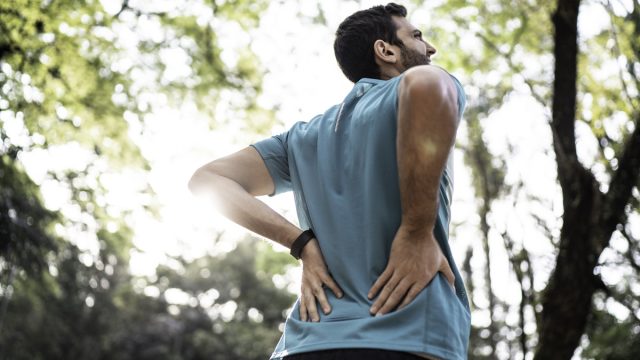
If you suffer from back pain, you're not alone. According to Georgetown University's Health Policy Institute, nearly 65 million Americans report having recent back pain problems, and another 16 million say they're contending with chronic back pain. Back pain is both a widespread and costly problem: A 2020 study published in JAMA found that Americans spent around $134 billion on neck and back pain treatments between 1996 and 2016. Luckily, there are plenty of things you can do to prevent and mitigate back pain—and it starts with your feet. Read on to find out the three worst shoes to wear for back pain.
RELATED: If You're Over 65, Never Wear This One Shoe, Experts Warn.
High heels are often associated with back pain, and for good reason.
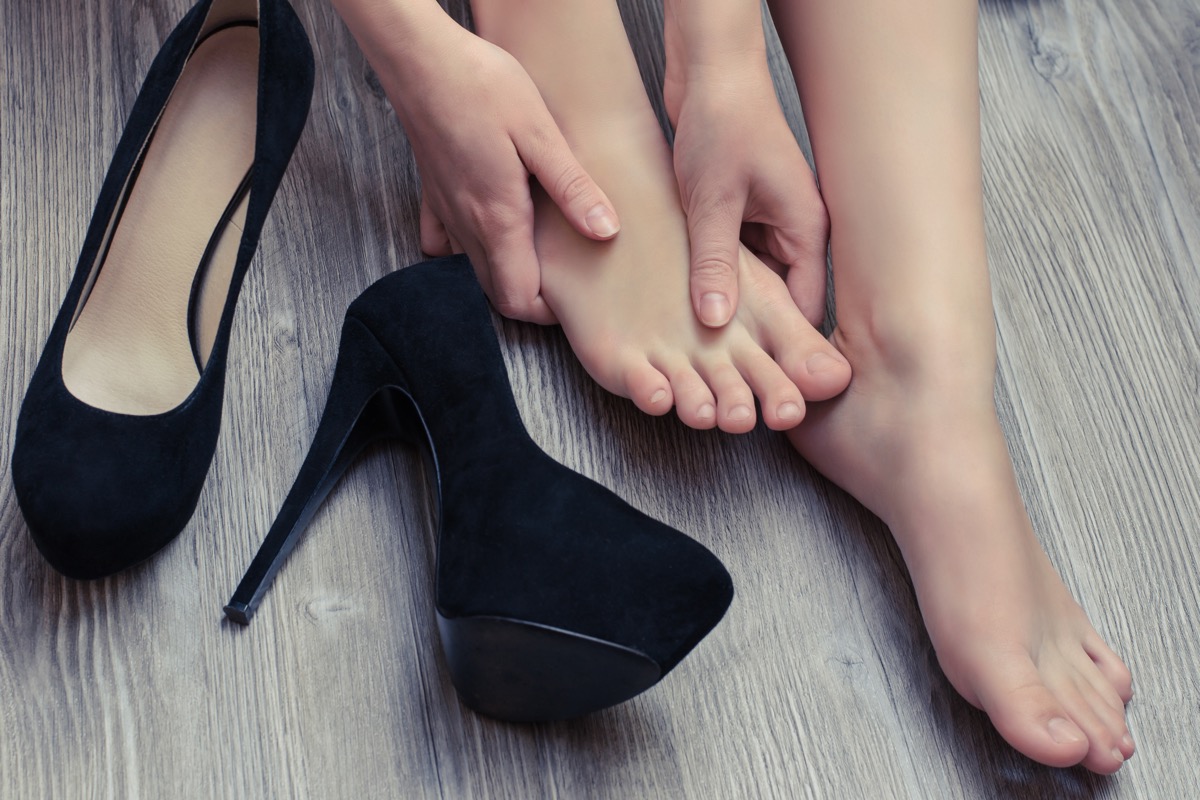
It's no surprise that high heels are a major cause of back pain—but they're often considered solely a woman's problem. But according to Long Island Spine Specialists, men who like cowboy boots, which can have a one to two-inch heel, aren't immune from shoe-related backaches. You don't have to wear sky-high heels to suffer ill effects from heeled shoes.
Wearing heels, the American Osteopathic Association (AOA) says, can force your center of gravity forward, which will cause you to involuntarily arch your back when you stand. Wearing them also makes your spine sway unnaturally from side to side as you shift your weight while walking, per Women's Health. The muscles in your feet connect to your calf muscles and your hamstrings, which connect into your pelvis and back. To wit, if your heel is unhappy, your back will be, too.
"High heels put the foot at an angle and pull muscles and joints out of alignment, so the effects aren't limited to the feet," Sajid A. Surve, DO, an associate professor at the University of North Texas Health Science Center Texas College of Osteopathic Medicine, told the AOA. "It's not unusual for people who spend lots of time in high heels to have low back, neck, and shoulder pain because the shoes disrupt the natural form of the body."
RELATED: Never Wear These Shoes on a Plane, Flight Attendant and Pilot Warn.
But flats aren't always the answer either.
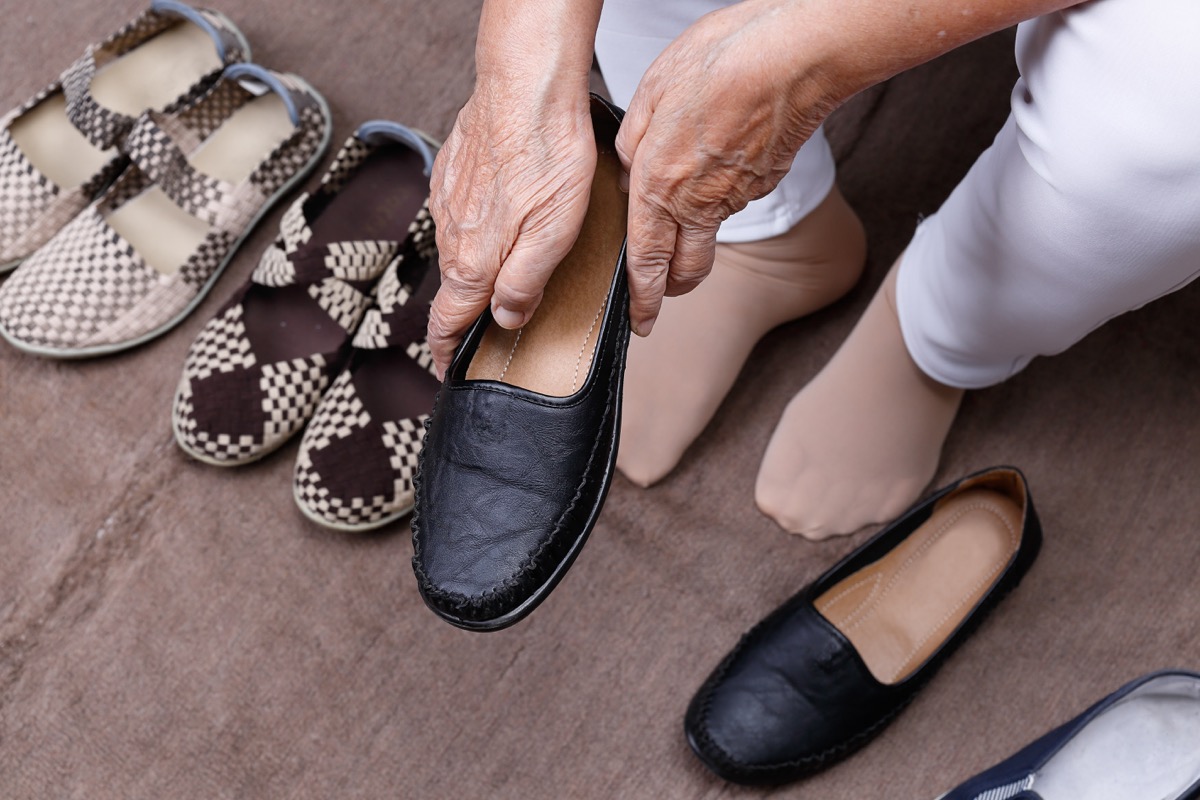
While you may instinctively reach for a pair of flats when your back is bothering you, experts say that these shoes can cause problems as well. Flats that don't offer enough arch support can put extra strain on your feet, which leaves you vulnerable to back pain.
According to the experts at Long Island Spine Specialists, "This impact pressure builds over time, and your hips and lower back take the brunt of it. The lack of padding and arch support will also cause the ligaments and tendons in your feet to overstretch. This all cumulates to produce more problems for your back and can lead to overall body pain."
And flip flops can cause ankle injuries or worse.
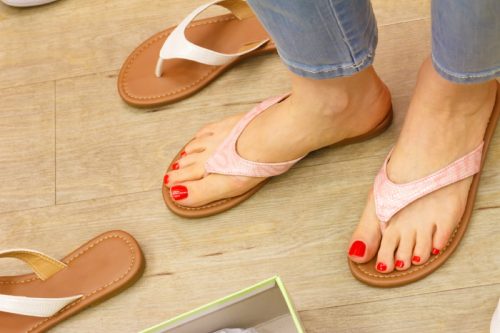
According to Prevention magazine, flip flops require that you scrunch your toes up to keep them on, often forcing you to overcompensate in your hips and back. Flip flops can also tire you out: Because you're scrunching your toes as you're walking, you'll naturally have a shorter step. Plus, flip flops don't offer any support for your arches, so you're slamming your foot down with each step.
RELATED: For more health advice delivered straight to your inbox, sign up for our daily newsletter.
There are shoes that can actually help with your back pain.
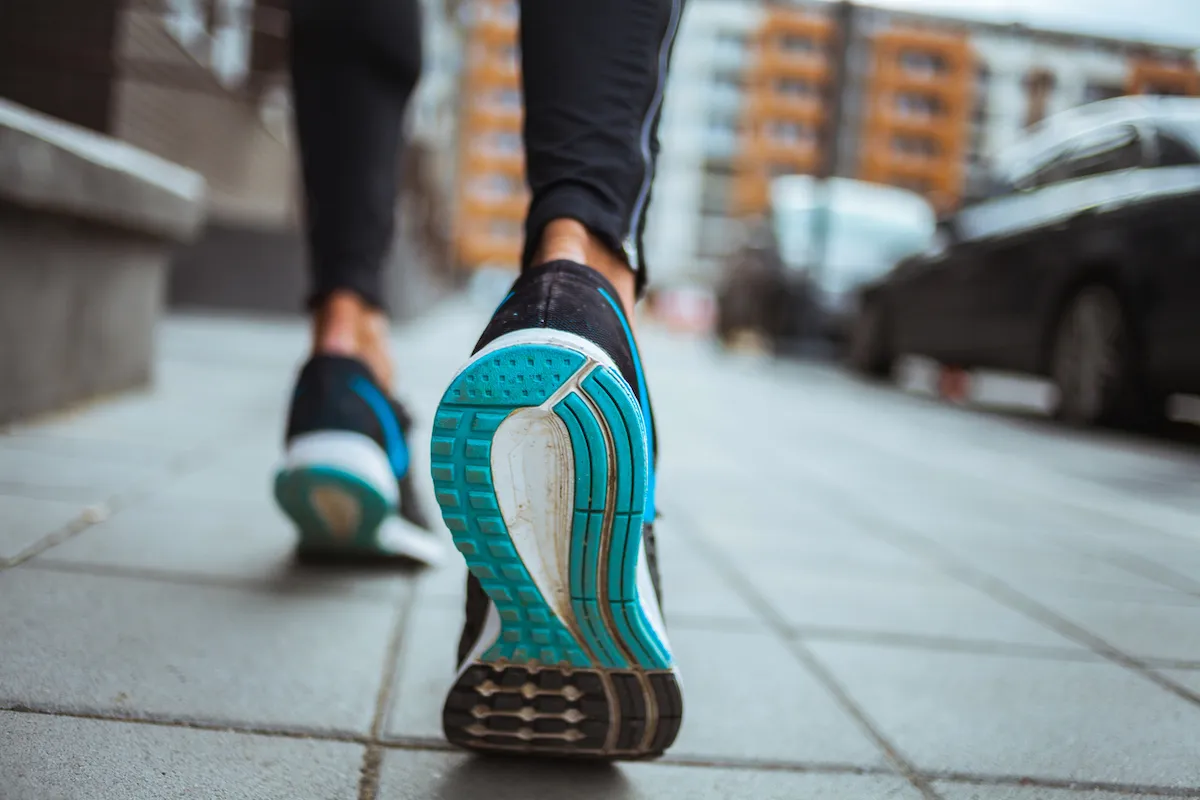
If you struggle with back pain, the experts at the Healthy Back Institute advise that you invest in a pair of tennis shoes or sneakers designed with movement in mind. Back-friendly shoes also have a contoured insole for shock absorption and arch support. To avoid back pain, shoes should have both arch support and cushioning.
If you want to wear heels, the experts at Mount Elizabeth Hospital suggest that you choose a shoe with a 1- to 2-inch heel at most. And Everyday Health recommends that you look for a shoe with a lightweight heel made from cork or rubber.
Regardless of the style, your shoes should fit properly, so make sure that you try them on before you buy. Ideally, the pair should have around a half-inch of space at the front, so your toes aren't smashed against the shoe. And when in doubt, look for brands that carry the seal of the American Podiatric Medical Association, which have been tested for comfort and support.
RELATED: Walking Exactly This Much a Week Adds Years to Your Life, Study Says.




















